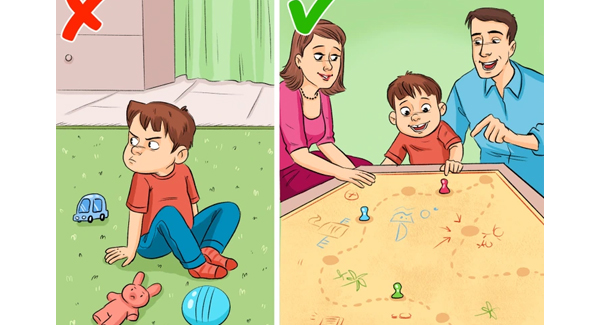Although there are various reasons why kids misbehave, boredom is the most frequent one. They understand that their actions are effective, particularly if they are successful in achieving their goals. Since mischievous behavior is a child’s attempt to exert control, the desire for power can occasionally also be the cause of mischievous behavior. Therefore, it’s critical to understand how to combat these behaviors and deal with them constructively.
Here are 9 tips to prevent these annoying tantrums.
1. Show them a more calm approach to situations

Since kids frequently imitate their parents, we should set an example for them by modeling composure. They will start to accept it as normal if you yell at them during a tantrum. Show them an alternative method of handling their feelings instead.
2. Offer choices, so they can decide what they want to do

Offering your child a choice will help them feel in control, says assistant professor Angie T. Cranor. Ask them which task they would prefer to complete first if they have to pick up their toys and then brush their teeth.
3. Carry snacks with you

Since hunger is frequently the cause of bad conduct or a negative attitude, bringing food with you when you and your child are outside may prevent a tantrum and keep your youngster happy.
4. Make them aware of potential bad outcomes

When a youngster asks you why they shouldn’t do something, you shouldn’t respond with “because I said so.” Always make an effort to speak with them and explain to them why they shouldn’t do certain things and what could happen if they misbehave. Inform children about the potential natural repercussions of their behavior so they can grow from it and make better choices in the future.
5. Create a home routine they have to follow and reward them for it

Encourage children to establish healthy habits, such as putting away the TV after a specific time, helping with the dishes, brushing their teeth, and going to bed at the right time. Additionally, you might create a board for the month if you’re feeling very imaginative. Inform them that they could receive a prize of their choosing if they stick to their schedule for the entire month (or for one or two weeks).
6. Give them logical consequences for breaking the rules

A particular conduct is linked to logical consequences. For instance, deny your child dessert if they refuse to eat their greens. Alternatively, deny them the opportunity to play with their toys for the remainder of the day if they refuse to pick them up. For children that struggle with particular things, this is beneficial. Avoid irrational punishments, though, such as making them clean the garage if they refuse to eat their food.
7. Redirect the child’s attention

The American Academy of Pediatrics states that children may misbehave because they are bored or lack self-awareness. Therefore, giving them something to do—more especially, something that will keep them interested and entertained—could divert their focus from mischievous behavior to something constructive.
8. Try to ask for their opinions and solutions to problems

If you ask them if they are having trouble with something, and they tell you what it is, you should sit down and talk about it. Make an effort to find out what they think they should do to address a problem. Help them a little if they don’t know the answer, but keep in mind that you should celebrate and encourage them and give them the impression that they are solving their own difficulty.
9. Acknowledge the emotions they are feeling and try to help them

Rather than portraying them as evil or malicious, you might demonstrate your understanding of their feelings. Recognizing a child’s emotions is always beneficial because they have a significant impact on their conduct. For instance, a straightforward “I understand you’re upset that we can’t visit the beach today, but the weather isn’t favorable.” The phrase “Let’s do something different together to make up for it” could have a significant impact on your youngster.










